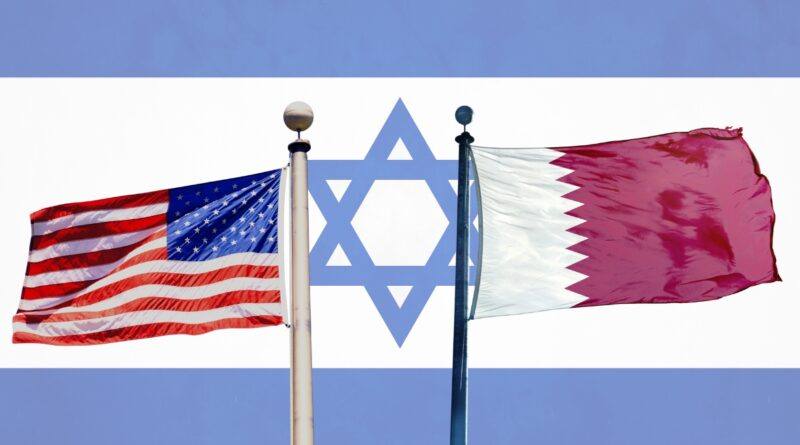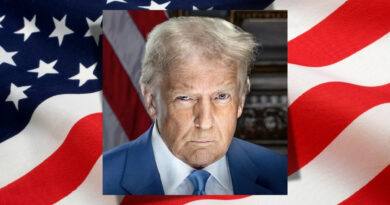Painful Betrayal: Qatar Now Finds It Out The Hard Way
World Politics | By Sunita Krishnan – WFY September 2025 Edition
Lavish Gifts, Broken Trust: Qatar’s Shock After Israel’s Strike
A Night of Explosions, a Morning of Doubts
When Israeli fighter jets thundered over Doha earlier this September, striking sites believed to be hosting Hamas’s political leadership, the Middle East was reminded once again of its fragility. Yet what stood out was not just the sound of bombs but the silence of allies.
The United States, long seen as Qatar’s strategic protector, appeared to have been forewarned of the attack, but its message to Doha came too late. For Qatar, a state that has invested deeply in friendship with Washington, the incident was not just an assault on its soil but a profound rupture of trust.
The Irony of a Close Partnership
Qatar is not a marginal player in the American orbit. It hosts Al Udeid Air Base, the largest US military installation in the Middle East, housing thousands of American personnel and critical assets. The partnership has extended beyond defence: only months earlier, Trump’s visit to Doha resulted in over 240 billion dollars of agreements, covering energy, defence, and technology.
To crown the moment, the Qatari leadership gifted Trump a luxury Boeing 747-8 aircraft, a gesture of extraordinary goodwill. The plane, dubbed a flying palace, symbolised not just wealth but trust — trust that Qatar was a valued partner. Coupled with commercial opportunities for the Trump family, including a golf course venture, Doha signalled its willingness to intertwine its fortunes with Washington’s.
The memory of that generosity now collides with the reality of being bombed while the supposed protector looked the other way.
A Leader Torn Between Roles
Trump has always sought to project himself as a peacemaker, often speaking of ceasefires and reconciliation in the same breath as strength and deterrence. The strike in Doha, however, exposed the contradictions of this posture. While Hamas representatives were meeting to discuss an American-backed truce, their gathering was shattered by bombs.
For Qatar, which had positioned itself as a neutral host and mediator, the incident undermined its credibility. For Trump, the optics were worse: a president enjoying gifts and deals with an ally one day, then failing to shield that ally from humiliation the next. The contradiction was stark enough to be described as a conflicted strategy rather than consistent diplomacy.
Regional Outrage and Rare Unity
The Arab world, usually fragmented by rivalries, reacted with unusual unanimity. From Riyadh to Tehran, and from Ankara to Abu Dhabi, leaders condemned the bombing. This rare harmony was less about Hamas and more about Qatar’s sovereignty. The message was simple: if a close ally of Washington, a host to its largest base, could be treated so dismissively, then no one’s security was guaranteed.
This shared sentiment has the potential to reshape regional alignments. Already, Gulf states are exploring alternative partnerships with China, Russia, and Europe. The Doha strike has accelerated a trend that might see America’s once unshakeable influence in the Gulf diluted.
Mixed Messages from Washington
The days after the strike revealed the confusion within the US administration. Early explanations claimed Washington had learned too late, only to be contradicted by reports that the warning to Doha was delivered after the first bombs had already landed.
Trump himself oscillated between defence and distancing. Initial remarks suggested eliminating Hamas justified the risks. Later, he clarified that the decision was Israel’s alone and even scolded Tel Aviv for undermining peace efforts. This rapid shift added to the sense that the US response was neither coherent nor trustworthy.
The Symbolism of Betrayal
The juxtaposition of Qatar’s lavish hospitality and the subsequent bombing resonated powerfully across the region and online. Phrases like “the jet that bought no protection” became shorthand for a larger narrative: alliances under Trump may be transactional, but not dependable.
For Qatar, which had risked its reputation by mediating between Israel and Hamas, the humiliation was compounded by the perception of being used. For the wider Gulf, the lesson was stark: Washington’s commitments may be shaped less by long-term loyalty and more by immediate political calculations.
Ceasefire Talks in Limbo
The bombing has cast a long shadow over Gaza peace efforts. Hamas, having survived the strike with its senior leadership intact, has hardened its stance. Qatar, bruised on its own soil, may find it difficult to continue as mediator. Other states, while sympathetic, lack Doha’s channels to both sides.
The immediate effect is likely a freeze in negotiations, prolonging the humanitarian crisis in Gaza and deepening mistrust on all sides.
Implications for Global Alliances
The credibility gap is not limited to the Middle East. Allies elsewhere are watching closely. If Qatar — a formally designated major non-NATO ally — can be sidelined in this way, smaller partners may wonder what guarantees they truly have.
For Europe, already wary of Washington’s unpredictability, the Doha strike raises questions about the reliability of American leadership in any multilateral effort. For Asian powers like India and Japan, who rely on US partnerships in the Indo-Pacific, the concern is whether similar contradictions could one day affect their own interests.
The Human Dimension
For Indians, this is not an abstract issue. Qatar hosts nearly 750,000 Indian expatriates, working across construction, services, and healthcare. Stability in Doha directly affects remittances sent back home and the security of families across the subcontinent. Any weakening of trust between Qatar and Washington risks unsettling the equilibrium that has allowed millions of migrants to build livelihoods in the Gulf.
The diaspora knows that behind the headlines of jets and deals lie the everyday realities of visas, jobs, and safety. The betrayal of Qatar is, in a very real sense, a matter of personal security for families dependent on the Gulf.
What Next for Doha?
Qatar now faces the challenge of recalibrating its foreign policy. It is unlikely to expel the US military presence — Al Udeid is too central to both nations’ interests — but Doha may seek to hedge by drawing closer to Turkey, Iran, or China. It will also work to rebuild its image as a credible mediator, though that path will be difficult after bombs fell during peace talks it hosted.
The long-term outcome may be a more multipolar Middle East, with Qatar at the forefront of diversifying alliances.
A Lesson for the United States
For Washington, the Doha strike should serve as a warning. Power is not just about military might or economic deals but also about trust. Once lost, trust is hard to regain. America’s credibility as a protector of allies and promoter of peace has been damaged, and no amount of rhetoric can erase the memory of bombs falling on the soil of a friend.
How we look at it?
The Israeli airstrike in Doha may be remembered not only for its immediate casualties but for its symbolism. A state that had offered extraordinary gestures of friendship — from billion-dollar deals to a flying palace of an aircraft — found itself abandoned in its moment of need. The result is a deep scar on the alliance and a profound question mark over America’s role in the Gulf.
In diplomacy, consistency is as important as strength. When a partner feels betrayed, especially after extending lavish trust, the consequences extend far beyond one night of explosions. They ripple across regions, across alliances, and across communities, reminding the world that the most powerful betrayal is not always of land or wealth but of faith.
© The WFY Magazine | Sunita Krishnan
Disclaimer: This article is an independent editorial prepared for The WFY Magazine. It draws on public reports, regional data, and historical context. No direct quotations are used; all perspectives are presented in the voice of the magazine’s editorial desk. The content is intended for informational and analytical purposes only and does not represent formal policy positions.




